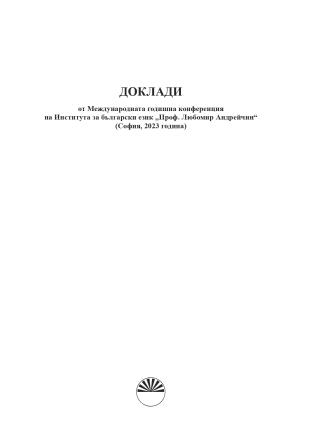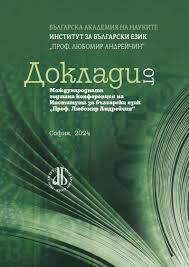
Функционално-семантичната категория залоговост в българския език
The purpose of the article is to outline the means (explicators, modifiers) that are in the core and periphery of the functional-semantic field of voice. Attention is paid not only to the morphological category of voice, which is at the core of the functional-semantic field; other peripheral explicators of the category – both lexical and syntactic – are considered, too. Some homonymous uses of passive forms with already lost passive meanings are discussed. An attempt is made to distinguish them by means of a functional-semantic (pragmatic, not formal) criterion.
More...
